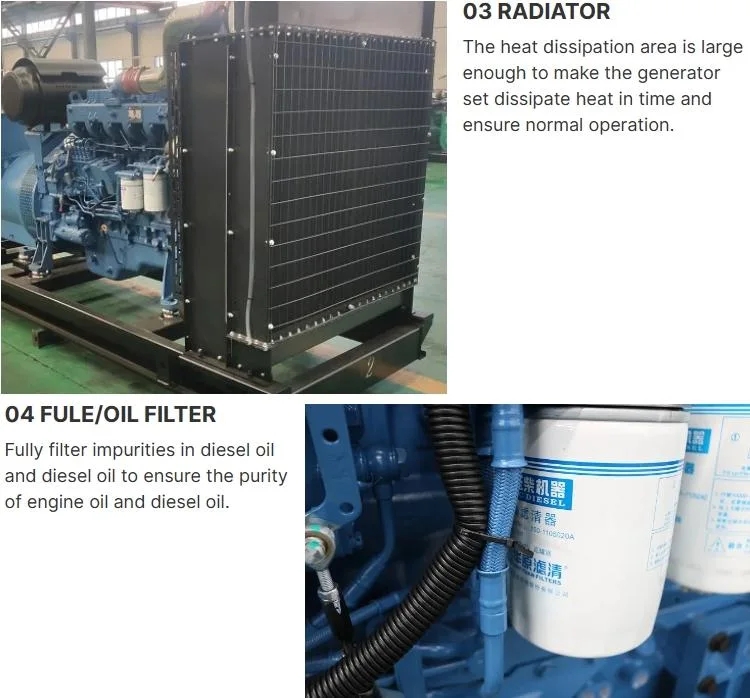Introduction
Diesel generators play a crucial role in providing backup power during emergencies, as well as serving as the primary source of electricity in remote locations or areas with unreliable grid power. However, the operation of diesel generators is subject to various regulatory requirements to ensure safety, efficiency, and environmental compliance. In this article, we will explore the key regulatory requirements that govern the use of diesel generators, the importance of compliance, and best practices for ensuring that diesel generators meet all necessary regulations.
Regulatory Framework for Diesel Generators
The operation of diesel generators is governed by a complex framework of regulations at the local, state, and federal levels. These regulations are designed to ensure that diesel generators are operated safely, efficiently, and in an environmentally responsible manner. Some of the key regulatory requirements that apply to diesel generators include:
1. Environmental Regulations: Diesel generators are known to emit pollutants such as nitrogen oxides (NOx), particulate matter (PM), and carbon monoxide (CO), which can have adverse effects on air quality and public health. To address these concerns, environmental regulations set limits on the emissions of these pollutants from diesel generators. The U.S. Environmental Protection Agency (EPA) regulates emissions from diesel generators under the Clean Air Act, with specific requirements based on the size and type of the generator.
2. Noise Regulations: Diesel generators can be noisy during operation, especially in residential areas or other noise-sensitive environments. To address this issue, noise regulations set limits on the sound levels that diesel generators can produce. These limits are typically measured in decibels (dB) and may vary depending on the time of day and the location of the generator.
3. Safety Regulations: Diesel generators pose various safety risks, including fire hazards, electrical hazards, and exhaust emissions. Safety regulations are in place to mitigate these risks and ensure that diesel generators are operated safely. These regulations may cover aspects such as installation requirements, fuel storage, ventilation, and electrical safety.
4. Permitting and Reporting Requirements: In many jurisdictions, operators of diesel generators are required to obtain permits before installing or operating a generator. These permits may specify conditions for operation, emission limits, and reporting requirements. Operators may also be required to keep records of maintenance activities, emissions testing results, and other relevant information.
Importance of Regulatory Compliance
Compliance with regulatory requirements is essential for several reasons:
1. Environmental Protection: Diesel generators are a significant source of air pollution, which can have serious health and environmental consequences. By complying with emissions regulations, operators can reduce the impact of their generators on air quality and contribute to environmental protection efforts.
2. funny post and Safety: Diesel generators can pose various risks to public health and safety, including air pollution, noise pollution, and safety hazards. Compliance with safety and noise regulations helps to minimize these risks and protect the health and well-being of the community.
3. Legal Compliance: Failure to comply with regulatory requirements can result in fines, penalties, and legal liabilities for operators of diesel generators. By ensuring compliance, operators can avoid these consequences and maintain a good standing with regulatory authorities.

Best Practices for Ensuring Compliance
To ensure that diesel generators meet all necessary regulatory requirements, operators can follow these best practices:
1. Regular Maintenance: Proper maintenance is essential for ensuring that diesel generators operate efficiently and comply with emissions regulations. Regular inspections, servicing, and testing can help to identify and address issues before they become compliance problems.
2. Emissions Monitoring: Operators should regularly monitor emissions from diesel generators to ensure that they are within permissible limits. This may involve conducting emissions testing, keeping records of emissions data, and reporting to regulatory authorities as required.
3. Noise Control Measures: To comply with noise regulations, operators can implement noise control measures such as soundproof enclosures, mufflers, and barriers. These measures can help to reduce the sound levels produced by diesel generators and prevent noise complaints from neighbors.
4. Training and Awareness: Operators and maintenance personnel should receive training on regulatory requirements and best practices for diesel generator operation. By raising awareness of compliance issues and providing the necessary knowledge and skills, operators can ensure that their generators meet all regulatory standards.
Conclusion
Diesel generators are essential for providing backup power and electricity in remote locations, but their operation is subject to various regulatory requirements to ensure safety, efficiency, and environmental compliance. By complying with environmental, noise, safety, and permitting regulations, operators can minimize the impact of diesel generators on air quality, public health, and safety. Following best practices such as regular maintenance, emissions monitoring, noise control measures, and training can help operators ensure that their diesel generators meet all necessary regulatory requirements. By prioritizing regulatory compliance, operators can contribute to a cleaner, safer, and more sustainable energy future.
